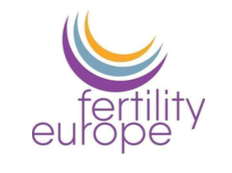All too many couples who are struggling to start a family have been given the unhelpful advice that they should “just relax”. Many people end up blaming themselves for their fertility problems, as though they are subconsciously stopping their bodies from conceiving successfully.
Fertility problems often go together with anxiety, depression, high stress levels, or all the above. A number of studies have found that couples struggling to conceive have higher levels of depression and anxiety [1]. But it’s not clear if the participants’ state of mind caused their fertility issues, or vice versa [2].

A 2011 meta-analysis of 14 studies into IVF success and women’s emotional distress covered more than 3,500 women [3]. It concluded that depression, anxiety, or other emotional distress did not have an impact on the outcome of treatment.
But this is a topic that’s very hard to explore scientifically. Most studies examine couples who are undergoing IVF treatment, but by this point, most people will have been struggling with fertility issues for a while. It’s hard to say whether their difficulty conceiving was caused by their state of mind, or if having trouble getting pregnant caused anxiety, depression, and distress.
Does infertility affect your state of mind?
When you’re having trouble expanding your family, it can affect your state of mind in many ways. A lot of people become isolated, because they avoid friends who are pregnant or have young children, and that can have its own impact on mental health. Fertility treatments can be expensive and lead to financial challenges. Some men and women feel a lack of control over their lives or bleak about the prospect of being unable to raise a family.
One study found that women who were receiving fertility treatments saw their symptoms of depression and anxiety get worse as their treatment progressed, which suggests that the treatment caused them emotional distress, and not the other way around [4].
Stress and infertility
Stress has been found to correlate closely with infertility, but the jury is out about the cause and effect [5]. Although doctors are still not sure if depression, anxiety, stress, or other emotional distress can make it harder to get pregnant, they agree that the way that you deal with these conditions is important. Ideally, prior to any medical intervention to treat infertility counselling should be considered [5].
People with mental or emotional health issues may tend towards unhealthy habits which can reduce fertility and/or lower the sex drive, including:
- Eating disorders, which can cause obesity or low body weight
- Drinking too much alcohol
- Consuming too much caffeine
- Smoking or vaping
- Insomnia
Some popular approaches to improving mental and emotional health while trying for a pregnancy include:
- Yoga
- Acupuncture
- Cognitive Behaviour Therapy
- Meditation
- Hypnosis
Your mental and emotional health always has a knock-on effect on your entire body, so it’s never a good idea to ignore it. Whether you’re trying to conceive spontaneously or beginning medically assisted reproduction (MAR), it’s clear that the more relaxed and positive you can be, the better.
If you’re trying to get pregnant, whether you’re hoping to conceive spontaneously or starting MAR, even if stress is not a barrier to stop you becoming pregnant, it seems safe to say that the less stressed you are, the smoother your pathway will be to conception. It’s never easy to relax but take the time to do activities that calm you down. We hope your path to parenthood will be smooth and with minimal stress.
References
- Smeenk JM, Verhaak CM, Eugster A, van Minnen A, Zielhuis GA, Braat DD. The effect of anxiety and depression on the outcome of in-vitro fertilization. Hum Reprod. 2001 Jul;16(7):1420-3. doi: https://doi.org/10.1093/humrep/16.7.1420
- Boivin J, Takefman JE. Stress level across stages of in vitro fertilization in subsequently pregnant and nonpregnant women. Fertil Steril. 1995 Oct;64(4):802-10. doi: https://doi.org/10.1016/S0015-0282(16)57858-3
- Boivin J, Griffiths E, Venetis CA. Emotional distress in infertile women and failure of assisted reproductive technologies: meta-analysis of prospective psychosocial studies. BMJ. 2011 Feb 23;342:d223. doi: https://doi.org/10.1136/bmj.d223
- Angela K. Lawson, Susan C. Klock, Mary Ellen Pavone, Jennifer Hirshfeld-Cytron, Kristin N. Smith, Ralph R. Kazer, Prospective study of depression and anxiety in female fertility preservation and infertility patients, Fertility and Sterility,Volume 102, Issue 5, 2014, Pages 1377-1384. DOI https://doi.org/10.1016/j.fertnstert.2014.07.765
- Simionescu G, Doroftei B, Maftei R, Obreja BE, Anton E, Grab D, Ilea C, Anton C. The complex relationship between infertility and psychological distress (Review). Exp Ther Med. 2021 Apr;21(4):306. doi: https://doi.org/10.3892/etm.2021.9737
Reviewed and approved by
Julian Jenkins, DM, FRCOG, Vice President Scientific Advisor Fertility ,Gedeon Richter
This article has been brought to you with the support of Gedeon Richter.
